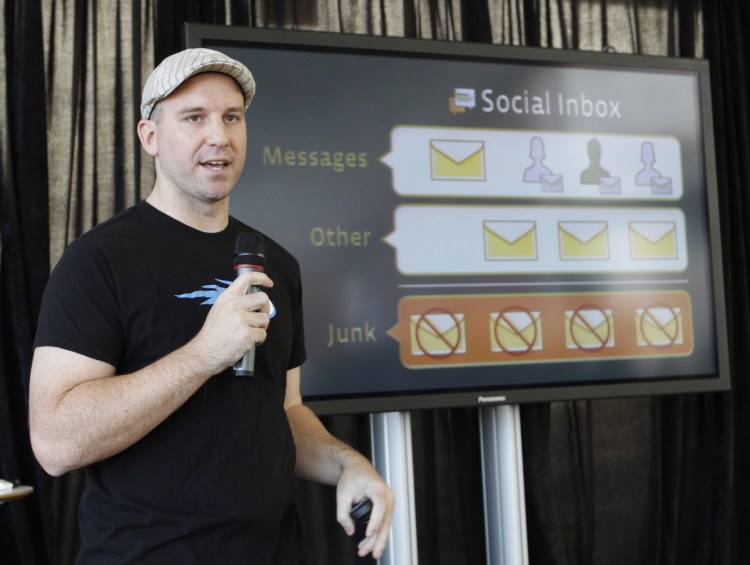In a 2016 employee memo that was leaked this week, a Facebook executive defended the company’s questionable data mining practices and championed the growth of social media at any cost — apparently even death.
“Maybe it costs a life by exposing someone to bullies,” company vice president Andrew Bosworth wrote in the memo, according to BuzzFeed News, which published the full memo on Thursday. “Maybe someone dies in a terrorist attack coordinated on our tools. And still we connect people. The ugly truth is that we believe in connecting people so deeply that anything that allows us to connect more people more often is *de facto* good.”
Bosworth, who oversaw Facebook’s advertising and business platform at the time and is now in charge of the company’s virtual reality department, has acknowledged writing the message but said he only intended to start a debate. “I didn’t agree with it even when I wrote it,” he wrote on Twitter after BuzzFeed published its report.
Facebook chief executive Mark Zuckerberg, who is already facing a public relations crisis over accusations that the company mishandled millions of users’ private data, disavowed the memo.
“Boz is a talented leader who says many provocative things,” Zuckerberg said in a statement, using Bosworth’s nickname. “This was one that most people at Facebook including myself disagreed with strongly. We’ve never believed the ends justify the means.”
The memo, about 400 words long, is framed around Zuckerberg’s often-stated goal of connecting the entire world through Facebook.
“The ugly truth is that we believe in connecting people so deeply that anything that allows us to connect more people more often is *de facto* good,” Bosworth wrote, after listing hypothetical examples of people using Facebook to fall in love, save a suicidal person, fatally bully a child or coordinate a terrorist attack.
“That’s why all the work we do in growth is justified,” he wrote. “All the questionable contact importing practices. All the subtle language that helps people stay searchable by friends. All of the work we do to bring more communication in. The work we will likely have to do in China some day. All of it.”
BuzzFeed noted that the memo was written almost immediately after a man was shot to death while streaming live video of himself on Facebook Live — one of several gruesome online incidents that have demonstrated the dark side of a connected world. Criticism of Facebook deepened after reports that Russian operatives used its networks to spread propaganda during the 2016 U.S. election. And reports this month that Cambridge Analytica, an outside firm linked to President Trump’s 2016 campaign, improperly obtained and exploited data from millions of users has thrown the company into crisis.
While Bosworth now argues that he was only playing the “Devil’s Advocate,” his memo two years ago said that Facebook would keep doing what it had been doing — connecting people and expanding — no matter how ugly the cost.
“In almost all of our work, we have to answer hard questions about what we believe,” he concluded. “We have to justify the metrics and make sure they aren’t losing out on a bigger picture. But connecting people. That’s our imperative. Because that’s what we do. We connect people.”
In the nearly two years that the memo remained on Facebook’s internal platform, BuzzFeed wrote, employees commented on it and debated it. While Bosworth said it was one of his most unpopular employee messages, a former senior executive told BuzzFeed that it was “super popular internally.”
The Verge reported that Bosworth deleted the memo after learning it had been obtained by reporters this week and then wrote a new message to employees complaining about leaks.
“If we have to live in fear that even our bad ideas will be exposed then we won’t explore them or understand them as such,” the vice president wrote, according to the Verge. “We run a much greater risk of stumbling on them later.”
Send questions/comments to the editors.



Success. Please wait for the page to reload. If the page does not reload within 5 seconds, please refresh the page.
Enter your email and password to access comments.
Hi, to comment on stories you must . This profile is in addition to your subscription and website login.
Already have a commenting profile? .
Invalid username/password.
Please check your email to confirm and complete your registration.
Only subscribers are eligible to post comments. Please subscribe or login first for digital access. Here’s why.
Use the form below to reset your password. When you've submitted your account email, we will send an email with a reset code.